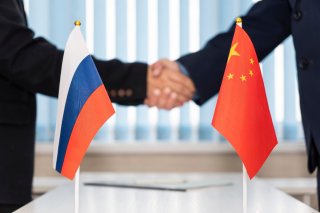The Slow, Bumpy Road of U.S.-China Diplomacy
Washington should be looking for ways to draw Beijing into a serious pursuit of peaceful coexistence—as cooperative as it is competitive—rather than a diplomatic game of recrimination and one-upmanship.
For all these reasons, it is not difficult to see why the recent burst of high-level U.S.-China diplomacy has yet to generate a discernible breakthrough in the direction of a constructive working relationship, let alone a mutually accommodative one—which will ultimately be necessary. Both sides are playing hard to get, presumably waiting for the other to admit the error of its ways, or at least to be the first to offer a meaningful concession that breaks the ice. And both sides clearly believe that they can afford to temporize because they have the moral high ground and the balance of leverage. As it is, each side is overestimating its own position and underestimating the other.
Both Beijing and Washington need to recognize the symmetry in this equation, and to realize that denying it is a path to greater misunderstanding and distrust—and perhaps an inexorable drift toward conflict. Neither side will secure the other side's surrender, or prevail—in any sustainable way—in a zero-sum or winner-take-all contest. The only viable exit ramp is substantive diplomacy aimed at de-escalation, mutual understanding, and incremental attention to each other’s core concerns. This should be supplemented with a determination to devote as much effort to forging areas of cooperation as to managing the inevitable areas of competition.
Domestic politics will make this investment in engagement difficult on both sides. Although Xi may be less constrained because of his autocratic power, he nonetheless faces challenges making the case in Beijing for a constructive approach to Washington, given the widespread skepticism in China that the United States is genuinely receptive to peaceful coexistence. The Biden administration could—and should—endeavor to correct that Chinese view, but it will be even more challenged by the corresponding skepticism in Washington that Beijing is a worthy interlocutor, and by the readiness of Biden’s political opponents to characterize him as inattentive to the seriousness of the China threat.
This was apparent during the July 20 hearing of the House Select Committee on the Chinese Communist Party, when Committee Chairman Mike Gallagher said that “the push for high-level engagement has come at the cost of defending ourselves from CCP aggression.” He described the Biden administration as “desperately seeking meetings [with Chinese officials] like ardent suitors,” leaving “good policies [toward China] that would earn bipartisan support” as “sacrifices on the altar of engagement.” Addressing that charge, Campbell asserted in his interview that “we’re not a wildly ardent suitor”; and Assistant Secretary of State Dan Kritenbrink emphasized at the Committee hearing itself that the administration “is clear-eyed about the challenges posed by the PRC,” reaffirming that “intense competition requires intense diplomacy.”
Washington should be looking for ways to draw Beijing into a serious pursuit of peaceful coexistence—as cooperative as it is competitive—rather than a diplomatic game of recrimination and one-upmanship. If the supposed “anti-China” bipartisan consensus in Washington proscribes this, U.S.-China relations will continue to devolve toward mutual enmity and even hostility.
Paul Heer is a Non-Resident Senior Fellow at the Chicago Council on Global Affairs. He served as National Intelligence Officer for East Asia from 2007 to 2015. He is the author of Mr. X and the Pacific: George F. Kennan and American Policy in East Asia (Cornell University Press, 2018).

